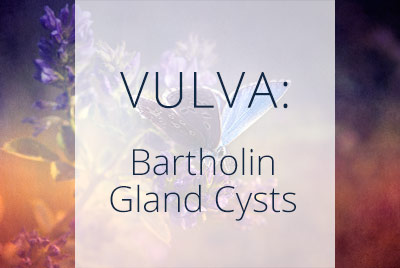Prid Drawing Salve Bartholin Cyst
What are Bartholin Gland Cysts?
 The Bartholin's glands are two tiny glands that are located on each side of the vaginal opening. They're about the size of a pea. Bartholin's glands produce the fluids that lubricate the thin skin of the vulva – the outer opening of the vagina. The fluid is secreted by Bartholin ducts, which are two tiny tubes opening near the vagina.
The Bartholin's glands are two tiny glands that are located on each side of the vaginal opening. They're about the size of a pea. Bartholin's glands produce the fluids that lubricate the thin skin of the vulva – the outer opening of the vagina. The fluid is secreted by Bartholin ducts, which are two tiny tubes opening near the vagina.
Occasionally, mucus, swelling, or infection can block the Bartholin's ducts, causing a Bartholin's gland cyst. A Bartholin's cyst may grow gradually, and range in size from a few millimeters to a centimeter in diameter.
Many of Bartholin's cysts are painless and will resolve on their own. However, some may cause discomfort, and in some cases, can become infected. An infected Bartholin's cyst is known as a gland abscess and must be treated right away.
Bartholin's abscesses can be caused by any of a number of bacteria. These include organisms that cause sexually transmitted diseases such as chlamydia and gonorrhea as well as bacteria normally found in the intestinal tract, such as Escherichia coli. It is common for these abscesses to involve more than one type of organism.
Symptoms of Bartholin Gland Cysts
Bartholin's cysts that are not infected will sometimes have no symptoms at all. But some common symptoms include:
- Small, painless bump or a lump under the vulvar skin
- Swelling or redness
- Discomfort while sitting, walking, or during sexual intercourse
An infected cyst, also known as an abscess, will present with more severe symptoms, such as:
- Swelling, redness, and tenderness in the vulva
- Pain that worsens with time, making it difficult to sit or walk
- Fluid draining from the cyst
- Fever or chills
Treating Bartholin Gland Cysts
Non-infected cysts
Sometimes self-care home treatment is all you need. Although many times these cysts will go away on their own, they may be uncomfortable to deal with. Over-the-counter pain relievers, such as ibuprofen (Motrin, Advil, etc), can help with the discomfort. Avoid sex until the cyst has healed.
You can help the cyst heal by soaking in inches of warm water bath, with or without Epsom salt. You can use your regular tub or a sitz bath, which is a basin you can place over your toilet seat and use to soak the genitals. These can be purchased at a pharmacy or medical supply store.
Some women find that the application of tea tree oil or witch hazel can help draw the cyst out.
Infected cysts (abscesses)
If you have an infected Bartholin's gland cyst, you should make an appointment with your health care doctor. Sometimes, a Bartholin cyst can become infected due to underlying sexually transmitted infections, which would require treatment.
An infected cyst may rupture on its own and heal within 3-4 days. However, you may also need it drained by your OB-GYN. In addition, you may need to take antibiotics to fight the infection.
To prevent the cyst from reoccurring, your doctor may recommend:
- Drainage tube/balloon. A small tube and balloon can be inserted into the cyst to keep it from clogging up again. The balloon should be removed after the area has healed.
- Carbon dioxide laser treatment
- Silver nitrate application
- Surgery. A persistent cyst that keeps coming back might need to be treated with surgery. Your doctor can surgically remove the Bartholin gland and duct to prevent future infections.
- Marsupialization. Doctors make a small cut in the cyst and stitch the inside edges of the cyst to the surface of the vulva. This procedure is done in an outpatient operating room. This is when the surgeon creates a pouch over the cyst by making an incision and then pursing the corners together with stitches, allowing the cyst an opening to drain. Sometimes a local anesthetic is needed.
If you believe you are experiencing symptoms of, or suffering from Bartholin's Gland Cysts, or have questions about it, please see your doctor.
If you believe you are experiencing symptoms of, or suffering from Bartholin Gland Cysts, or have questions about it, please see your doctor. We also invite you to establish care with Dr. Aliabadi. Please click here to make an appointment or call us at (844) 863- 6700.
- About
- Latest Posts
![]()
Highly-trained and honored by the medical community, Dr. Thais Aliabadi is certified by the American Board of Obstetrics and Gynecology and a Diplomat of the American College of Obstetrics and Gynecology. She implements the most advanced, state-of-the-art technology and treatment options. Dr. Aliabadi specializes in up-to-date, minimally invasive surgical techniques, promising her patients shorter recovery times, reduced pain, and the least interruption to their daily lives.
Supported by her warm professional team, Dr. Aliabadi treats women through all phases of life and cherishes the special one-on-one relationship between patient and doctor.
![]()
Prid Drawing Salve Bartholin Cyst
Source: https://www.draliabadi.com/gynecology/vulval-conditions/bartholin-gland-cysts/
Posted by: pullenmrseach.blogspot.com

0 Response to "Prid Drawing Salve Bartholin Cyst"
Post a Comment